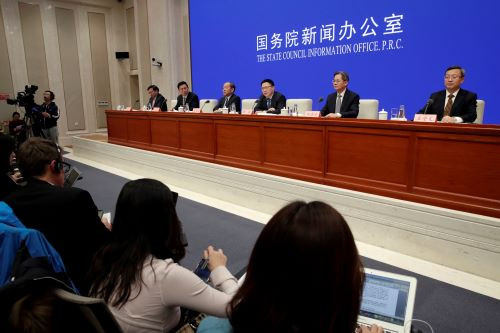Earlier this month, Chinese policymakers revealed that China would continue to open its financial market to foreign businesses and investments and develop a larger scale and a deeper level of openness in the global market. They also manifested that foreign investments into China would be better protected and facilitated.
According to China.org.cn, Chinese policymakers shared during key economic conferences that China is committed to continuing its policy strategies in opening up its financial markets to foreign investments. It was also announced that China would shorten the negative list for foreign investments to encourage its enterprises to diversify export markets.
The said institutional reforms in China were also referred to as a strategy that would develop a fresh economic landscape for China and substantially change the global economy as well. It was then discussed that when China first opened up its financial markets to the world, the Chinese government had to conduct immense research and experiments in coastal areas to assess the need for expansion. They also claimed that part of the experiments was conducted in central and western regions in China several years after the research and development phase.
Moreover, it was also shared that since 2010, China had developed state-level areas within its territory to manifest their commitment to promoting balanced development in its economy by opening its regions to foreign investments. It was also revealed that China's pilot free trade zones (FTZs) outnumbered its eastern areas that limited access to foreign investments.
According to the report, more institutional areas would be opened up in 2020. The Chinese policymakers manifested that those affected by the opening of its financial markets to the global economy are those concerned with commodities. At present, the report claimed that China has found systemic openness as a strategy to alleviate its internal economic problems.
It was also revealed in the report that China has made steps in implementing pre-establishment national treatment and plans on shortening its negative list for foreign investments by improving the protection of intellectual property rights. According to a research fellow with the China Center for International Economic Exchanges Zhang Monan, China is transitioning into a rule-based country by opening up its economy to financial investments. She claimed that it was the country's manifestation that it wants to develop a higher-level open the economy in establishing a market system that abides by international rules, regulations, management, and business standards.
At present, Forbes reported that China has been bombarded with foreign investors who bought over 1.2 billion USD mainland stocks. It was then revealed that Asian equities have shown great potential regarding investor sentiments after the China-US trade deal.






